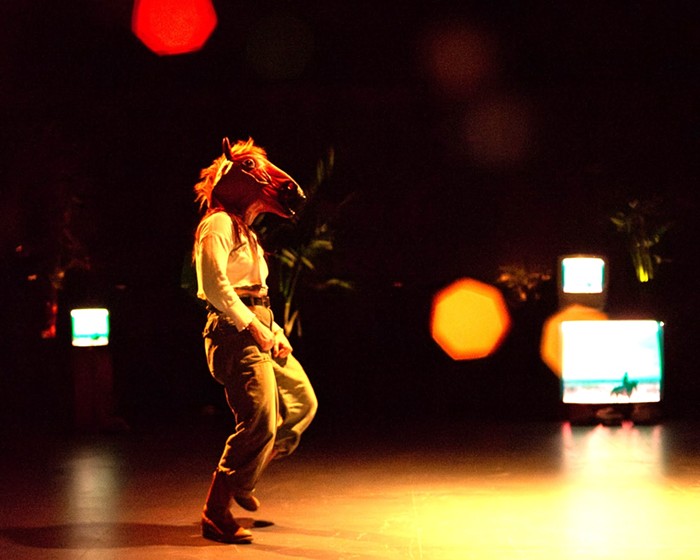Theater! Theatre!, 3430 SE Belmont, 227-2583, Thurs-Sat 8 pm, Sun 7 pm, through July 25, $12-24
I 'll admit that I was skeptical going into Carver Country, the inauguration of Portland Arts and Lecture's new program, VERB: Literature in Performance. Literature in performance? Why? We're not talking about adapting stories for stage, but performances of the stories themselves, as written. In what Portland Arts and Lectures hopes to make an annual event, they present "literary performances" of works by two native Oregonians: Carver, and later this month, Ursula K. LeGuin.
But first off: Raymond Carver, a master of subtlety and understatement. Carver never lingered on scenes, never dramatically hammered his point home, but let the reader figure out the subtext for him/herself.
The best of the three performances in Carver Country is "Cathedral" because, unlike much of Carver's work, the story's subtlety is in the meaning, not in the action. This frees the cast from making "theatrical" choices that are overly strong to the point of distorting the characters. And "Cathedral," about a blind man come to visit an old friend and her suspicious husband, also has moments of overt humor--again, not always common in Carver's writing.
The other two stories don't fare as well. "Why, Honey?" comes across like sketch comedy, despite the fact that Jean Miller gives a convincing performance as a mother stuck dealing with a psychopathic son. Similarly, "What We Talk About When We Talk About Love" contains good performances, especially by the two women, Deanna Wells and Deirdre Atkinson, but falls flat as a representation of the story. The love discussed by the protagonists in "What We Talk About" is drunken, and there are hints of violence between one couple, Mel and Terri. On stage, however, they don't hint at violence, but come close to actually inflicting it on each other. Mel (a needlessly goofy David Sikking) thus becomes the exact type of caricature Carver spent his whole career deftly avoiding.
In the end I asked myself again, why literature in performance? Well, why not? It at least generates interest in the authors, though this maiden performance indicates that more care needs to go into picking the stories that get staged. M. WILLIAM HELFRICH


















